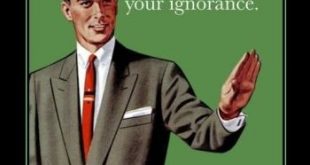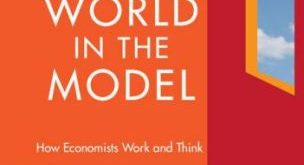[embedded content]
Read More »Adam Smith and the other side of the invisible hand
Adam Smith and the other side of the invisible hand How selfish soever man may be supposed, there are evidently some principles in his nature, which interest him in the fortune of others, and render their happiness necessary to him, though he derives nothing from it except the pleasure of seeing it. Of this kind is pity or compassion, the emotion which we feel for the misery of others, when we either see it, or are made to conceive it in a very lively...
Read More »Rational choice theory — an abysmal failure
Rational choice theory — an abysmal failure Though an enthusiast of reason, I believe that rational choice theory has failed abysmally, and it saddens me that this failure has brought discredit upon the very enterprise of serious theorizing in the field of social study … Rational choice theory is far too ambitious. In fact, it claims to explain everything social in terms of just three assumptions that would hold for all individuals in all social groups and...
Read More »Sacrificing realism at the altar of mathematical purity
Sacrificing realism at the altar of mathematical purity Economists are too detached from the real world and have failed to learn from the financial crisis, insisting on using mathematical models which do not reflect reality, according to the Bank of England’s chief economist Andy Haldane. The public has lost faith in economists since the credit crunch, he said, but the profession has failed to thoroughly re-examine its failings to come up with a new model...
Read More »Econometrics — a Keynesian perspective
Econometrics — a Keynesian perspective It will be remembered that the seventy translators of the Septuagint were shut up in seventy separate rooms with the Hebrew text and brought out with them, when they emerged, seventy identical translations. Would the same miracle be vouchsafed if seventy multiple correlators were shut up with the same statistical material? And anyhow, I suppose, if each had a different economist perched on his a priori, that would make...
Read More »How the model became the message in economics
How the model became the message in economics In The World in the Model Mary Morgan gives a historical account of how the model became the message in economics. On the question of how the models provide a method of enquiry where they can function both as “objects to enquire into” and as “objects to enquire with”, Morgan argues that model reasoning involves a kind of experiment. She writes: It may help to clarify my account of modelling as a double method...
Read More »The representative agent — a theoretical cul-de-sac
The representative agent — a theoretical cul-de-sac Rigorous macroeconomics must therefore ground its analysis in individual behavior, recognize that only a few key variables carry over to the aggregate level, and generally posit distinct functional forms at the macro level. Keynes and Kalecki are eminent examples of this. Keynes builds his analysis of aggregate consumption on personal income and a variety of subjective and objective factors that influence...
Read More »So your models are nothing but fiction? Count me out!
So your models are nothing but fiction? Count me out! I have spent a considerable part of my life building economic models, and examining the models that other economists have built. I believe that I am making reasonably good use of my talents in an attempt to understand the social world.I have no fellow-feeling with those economic theorists who, off the record at seminars and conferences, admit that they are only playing a game with other theorists. If...
Read More »The Grossman-Stiglitz paradox
In general the price system does not reveal all the information about “the true value” of the risky asset … The only way informed traders can earn a return on their activity of information gathering, is if they can use their information to take positions in the market which are “better” than the positions of uninformed traders. “Efficient Markets” theorists have claimed that “at any time prices fully reflect all available information” … If this were so then informed traders...
Read More »The advantages and limitations of forecasting
The advantages and limitations of forecasting In New York State, Section 899 of the Code of Criminal Procedure provides that persons “Pretending to Forecast the Future” shall be considered disorderly under subdivision 3, Section 901 of the Code and liable to a fine of $250 and/or six months in prison. Although the law does not apply to “ecclesiastical bodies acting in good faith and without fees,” I’m not sure where that leaves econometricians and other...
Read More » Heterodox
Heterodox









